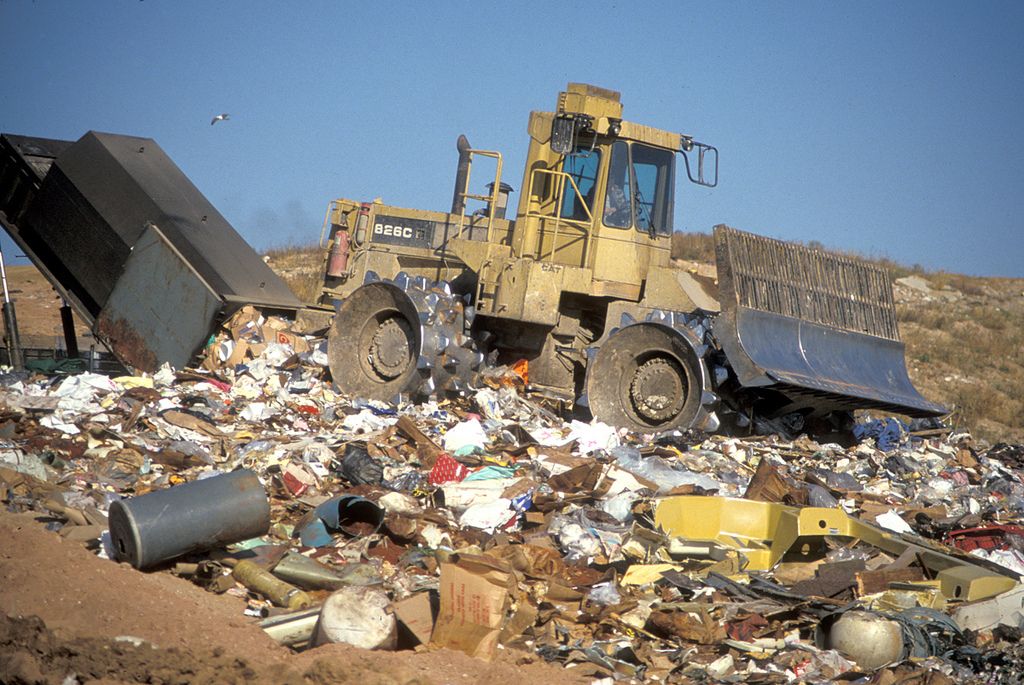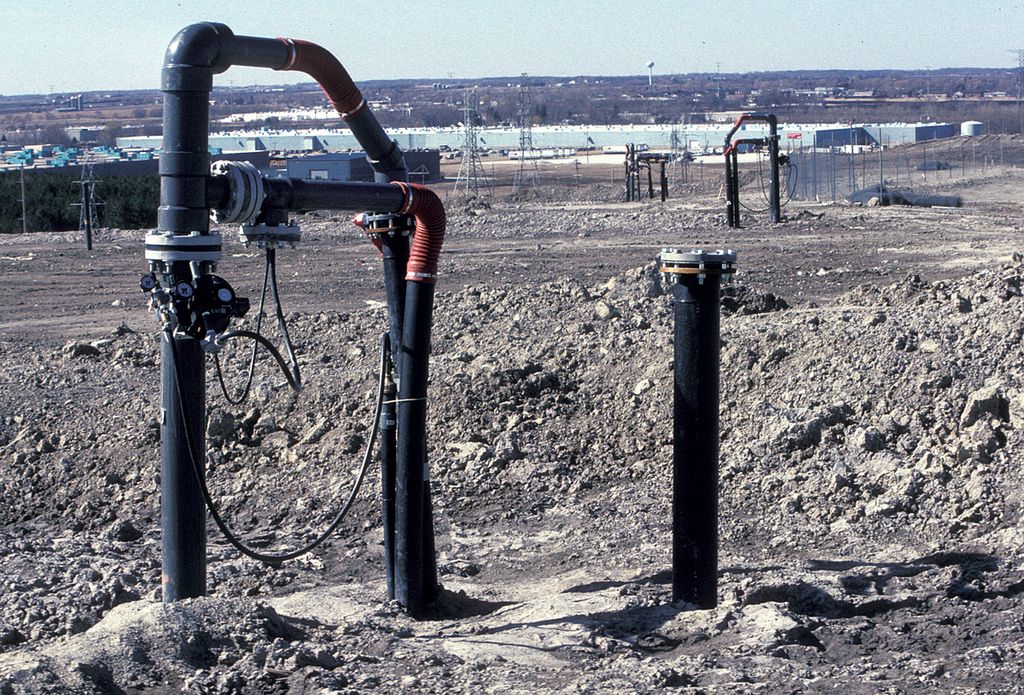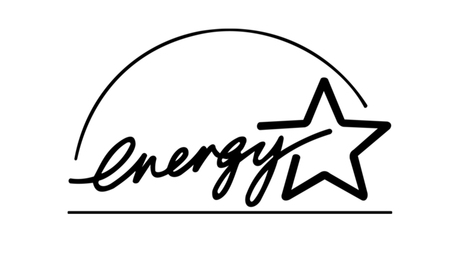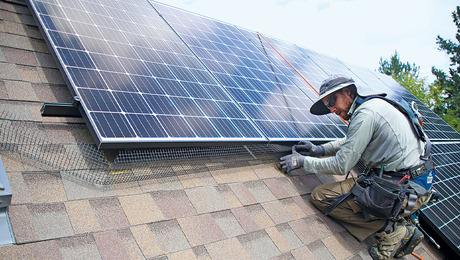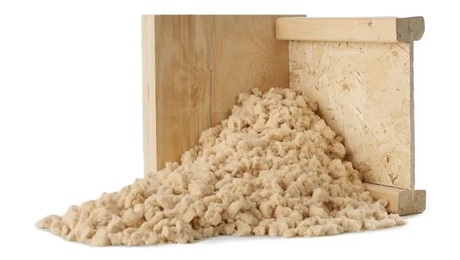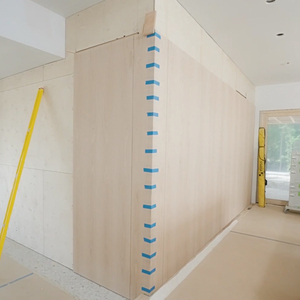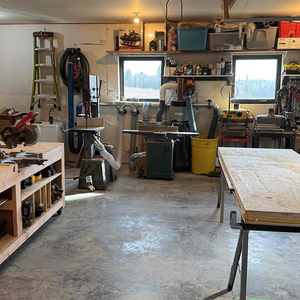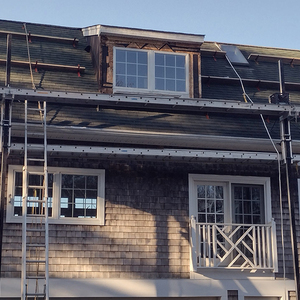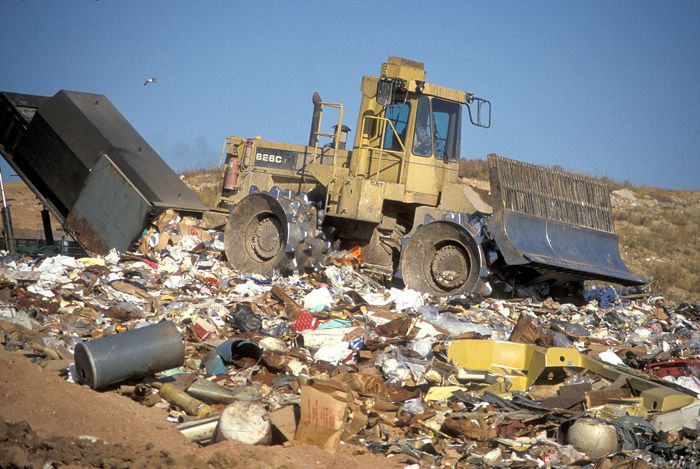
A new Yale University study suggests solid-waste landfills are emitting far more climate-changing methane than previously thought because government estimates of how much garbage goes to landfills are inaccurate.
A report published at Climate Central says researchers examined data from more than 1200 solid-waste landfills around the country in reaching their conclusion. Some of the landfills were open, while others were closed and no longer accepting garbage.
As garbage breaks down, it gives off methane, a greenhouse gas 25 times more potent than carbon dioxide. Landfills are the third largest source of methane in the U.S., behind natural gas and petroleum systems and agriculture.
In 2012, roughly 262-million metric tons of waste went into landfills, more than twice as much as had been estimated by the U.S. Environmental Protection Agency, the researchers said. The agency is underestimating the problem because small waste-disposal sites are not required to report how much garbage they accept.
The study’s authors used data that was previously unavailable, Climate Central said, as they looked into the effectiveness of methane extraction systems. Gas extraction was more effective at landfills that had been capped than it was where they were still open.
“When a landfill reaches the end of its life, an engineered cap or barrier system is installed to seal off the waste material from the environment,” co-author Jon Powell, a Yale doctoral students, told Climate Central. “Open landfills typically have some areas that are ‘closed’ in this manner, but also have areas that do not have permanent caps, and it is more difficult to extract methane and other gases that are generated in these areas.”
Full extent of the problem still isn’t known
Scientists not connected with the Yale study said the impact of landfill methane emissions on the climate won’t be fully understood until more information becomes available.
Better gas-capturing technology will help reduce emissions, but in the meantime, Duke University sciences professor Drew Shindell said, composting is a low-tech solution that would be useful.
“We could simply not throw organics into the trash,” Shindell told Climate Central. “So, behavioral change by composting our organics could prevent virtually all the methane emissions from landfills without requiring any of the technological fixes and complex regulations.”
An atmospheric physicist at Oxford University, Raymond Pierrehumbert, said methane emissions will decline when people become more aware of what they throw away. “Recycling helps,” he said, “but the first line of defense is making less waste to begin with.”
The Yale study was published online earlier this month by the journal Nature Climate Change. The full text is behind a pay wall.
Landfill gases as an energy source
The EPA already runs a program called the Landfill Methane Outreach Program, which is designed to help communities reduce methane emissions from landfills.
Extraction systems pipe landfill gas–consisting of roughly 50% methane and 50% carbon dioxide–to a central point where it can be processed and treated. The gas can then be used to make electricity, to run manufacturing facilities, or even upgraded to a “pipeline-quality gas” that can be used to power vehicles, according to the EPA.
The agency says the program had helped 580 landfill gas programs by 2012 and collectively avoided 26.3-million metric tons of C02 that year–the same as would have been given off by burning 141,000 rail cars full of coal.
In August, the EPA proposed two new rules that would reduce landfill gas emissions by requiring new and existing landfills to begin capturing gas at levels almost one third lower than current requirements. They would require another 106 open landfills to begin collecting gas emissions, bringing the total of open and closed landfills with gas extraction systems to 680 in 2025, the EPA said in statement.
The proposals are part of the Obama administration’s Climate Action Plan.
Read more: http://www.greenbuildingadvisor.com/blogs/dept/green-building-news%2A#ixzz3nA9kwWdT
Follow us: @gbadvisor on Twitter | GreenBuildingAdvisor on Facebook
Fine Homebuilding Recommended Products
Fine Homebuilding receives a commission for items purchased through links on this site, including Amazon Associates and other affiliate advertising programs.

Handy Heat Gun

8067 All-Weather Flashing Tape

Affordable IR Camera
